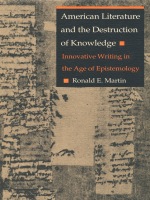
The works of Melville, Emerson, Whitman, and Dickinson, followed by Crane, Frost, Pound, Stein, Hemingway, Dos Passos, Aiken, Stevens, and Williams, are examined as part of a cultural current that casts doubt on the possibility of knowledge itself. The destruction of concepts, of literary and linguistic forms, was for these writers a precondition for liberating the imagination to gain more access to the self and the real world. As part of the exploration of this cultural context, literary and philosophical realisms are examined together, allowing a comparison of their somewhat different objectives, as well as their common epistemological predicament.
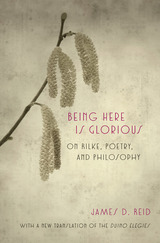
With a new translation of the Duino Elegies
“Who, if I cried out, would hear me among the angels’/orders?” Rainer Maria Rilke’s Duino Elegies opens with one of the most powerful poetic expressions of the search for meaning in the modern world. Published in 1923, the Elegies would influence important philosophers on the Continent, including Heidegger. But with a few exceptions, Rilke’s poetry has not had an impact on philosophy in the Anglo-American world. In Being Here Is Glorious, James D. Reid offers a fresh translation of the Elegies, which hews to the form of the original and provides his own meditation on the place of poetry in philosophy. Reid makes a convincing case that poetry and philosophy can address the problem of finding things significant and worth affirming in light of various reasons to doubt the value of the world in which we find ourselves cast.

Angus Fletcher is one of our finest theorists of the arts, the heir to I. A. Richards, Erich Auerbach, Northrop Frye. This, his grandest book since the groundbreaking Allegory of 1964, aims to open another field of study: how thought--the act, the experience of thinking--is represented in literature.
Recognizing that the field of formal philosophy is only one demonstration of the uses of thought, Fletcher looks for the ways other languages (and their framing forms) serve the purpose of certain thinking activities. What kinds of thinking accompany the writing of history? How does the gnomic sentence manage to represent some point of belief? The fresh insights Fletcher achieves at every turn suggest an anatomy of poetic and fictional strategies for representing thought--the hazards, the complications, the sufferings, the romance of thought. Fletcher's resources are large, and his step is sure. The reader samples his piercing vision of Milton's Satan, the original Thinker, leaving the pain of thinking as his legacy for mankind; Marvell's mysteriously haunting "green thought in a green shade"; Old Testament and Herodotus, Vico and Coleridge; Crane, Calvino, Stevens. Fletcher ranges over the heights of literature, poetry, music, and film, never losing sight of his central line of inquiry. He includes comments on the essential role of unclear, vague, and even irrational thinking to suggest that ideas often come alive as thoughts only in a process of considerable distress. In the end he gives us literature--not the content of thought, but its form, its shape, the fugitive colors taken on by the mind as represented in art.
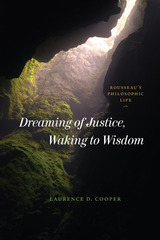
Dreaming of Justice, Waking to Wisdom reveals what could be thought of as the capstone of Rousseau’s thought, even if that capstone has been nearly invisible to readers. Despite criticizing philosophy for its corrosive effects on both natural goodness and civic virtue, Rousseau, argues Laurence D. Cooper, held the philosophic life as an ideal. Cooper expertly unpacks Rousseau’s vivid depiction of the philosophic life and the case for that life as the most natural, the freest, or, in short, the best or most choice-worthy of lives. Cooper focuses especially on a single feature, arguably the defining feature of the philosophic life: the overcoming of the ordinary moral consciousness in favor of the cognitivist view of morality. Cooper shows that Rousseau, with his particular understanding and embrace of the philosophic life, proves to be a kind of latter-day Socratic. Thorough and thought-provoking, Dreaming of Justice, Waking to Wisdom provides vital insight into Rousseau.

Concentrating on poems published between 1915 and 1935—but moving occasionally into later poems, as well as letters and essays—B. J. Leggett draws together texts of Stevens and Nietzsche to produce new and surprising readings of the poet's early work. This intertextual critique reveals previously undisclosed ideologies operating at the margins of Stevens's work, enabling Leggett to read aspects of the poetry that have until now been unreadable. Leggett's analysis demonstrates that the Nietzschean presence in Stevens brings with it certain assumptions that need to be made explicit if the form of the poetry is to be understood.
Though many critics have discussed the concept of intertextuality, few have attempted a truly intertextual reading of a particular poet. Early Stevens not only develops an exemplary model of such a reading; it also provides crucial insights into Stevens's notions of femininity, virility, and poetry and elucidates the notions of art, untruth, fiction, and interpretation in both Stevens and Nietzsche.
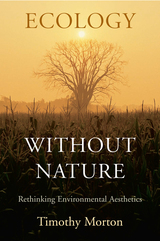
In Ecology without Nature, Timothy Morton argues that the chief stumbling block to environmental thinking is the image of nature itself. Ecological writers propose a new worldview, but their very zeal to preserve the natural world leads them away from the "nature" they revere. The problem is a symptom of the ecological catastrophe in which we are living. Morton sets out a seeming paradox: to have a properly ecological view, we must relinquish the idea of nature once and for all.
Ecology without Nature investigates our ecological assumptions in a way that is provocative and deeply engaging. Ranging widely in eighteenth-century through contemporary philosophy, culture, and history, he explores the value of art in imagining environmental projects for the future. Morton develops a fresh vocabulary for reading "environmentality" in artistic form as well as content, and traces the contexts of ecological constructs through the history of capitalism. From John Clare to John Cage, from Kierkegaard to Kristeva, from The Lord of the Rings to electronic life forms, Ecology without Nature widens our view of ecological criticism, and deepens our understanding of ecology itself. Instead of trying to use an idea of nature to heal what society has damaged, Morton sets out a radical new form of ecological criticism: "dark ecology."


In the English response to the increasingly bloody French Revolution, Seamus Deane finds a new perspective on English political thought as well as a striking indication of the sharpening of national consciousness. Ranging widely among the major and lesser thinkers of the period, he has produced a complex picture of cultural affinity and national hostility. The group dominated by Edmund Burke, which included Southey, Wordsworth, and Carlyle, viewed the Revolution as the culmination of a great conspiracy, led by intellectuals, to overthrow all that was sacred and traditional. The radical group, led by Godwin, Shelley, and Hazlitt, welcomed the Revolution but were perturbed by its excesses.
The English debate about the French Revolution tended to focus on the specifically French characteristics that made it what it was, in sharp contrast to the culture and experience that produced the relatively peaceful English revolution of 1688. To see the Revolution as an essentially French phenomenon allowed it to be understood as alien to English circumstances and inclinations. This permitted the English to deny that its basic doctrines had any claim to universality and also led to an enhanced definition of the English national character. In his analysis of major writers, popular political novelists, and pamphleteers, Deane interprets the intellectual indebtedness of individual English writers to their French counterparts, reflects on the power of the written word to influence events, and dissects polemical styles and language. His book constitutes an important chapter of English intellectual history.
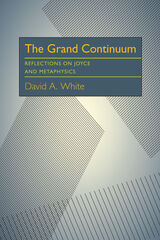
The assumptions that literary criticism and philosophy are closely linked—and that both disciplines can learn much from each other—lead David White to examine key passages in James Joyce’s novels both as a philosopher and as literary critic. In so doing, he develops a thesis that Joyce’s attempt to capture the mysterious process whereby perception and consciousness are translated into language entails a fundamental challenge to everyday notions of reality. Joyce’s stylistic brilliance and virtuosity, his destruction of normal syntax and meaning, “shock one into a new reality.” In the book’s final section, White examines the subtle relation between literary language and human consciousness and traces parallels between Joyce’s stylistic experimentation and Wittgenstein’s and Husserl’s ideas about language.

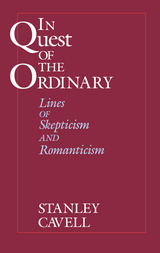
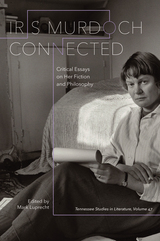
The first part of the collection focuses on Murdoch’s literary works and approach to art. Frances White’s opening essay examines the influence of Virginia Woolf on Murdoch, while Elaine Morley deals with attention and “unselfing” in the writer’s works. Much can be learned from Murdoch’s letters, as Miles Leeson and Anne Rowe demonstrate in their respective contributions. David James explores Murdoch’s influence on fellow Irish writer John Banville. Finally, Pamela Osborn and Rivka Isaacson offer vastly different perspectives on Murdoch’s fourth novel, The Bell, in the two essays that round out the literature-centric half of the collection.
Part two highlights concepts in and approaches to Murdoch’s philosophical thought. Tony Milligan writes of the meanings of puritanism and truthfulness in Murdoch’s philosophical writings and essays and in her novel A Fairly Honourable Defeat. Julián Jiménez Heffernan’s contribution centers on Murdoch’s confrontation with the notion of contingency. Using the philosophical lens of metaxu, Kate Larson suggests a new approach to Murdoch’s thought by looking at it in relation to that of Simone Weil. Paul Martens locates the similarities of structure in Murdoch’s The Black Prince and Søren Kierkegaard’s Fear and Trembling. Lastly, Matthew Martinuk delves into the affinity of thought between Charles Taylor and Murdoch.
By examining both Murdoch’s influences and those she has influenced, Iris Murdoch Connected constructs complex new understandings of this formidable writer’s vast contributions to literature and philosophy.

Krell pursues important philosophical motifs such as time, rhythm, and desire, through texts by Nietzsche, Trakl, Empedocles, Kafka, and Garcia Marquez. He surveys instances in which poets or novelists explicitly address philosophical questions, and philosophers confront literary texts—Heidegger's and Derrida's appropriations of Georg Trakl's poetry, Blanchot's obsession with Kafka's tortuous love affairs, and Garcia Marquez's use of Nietzsche's idea of the Eternal Return—all linked by the tragic hero Empedocles.
In his search to understand the insatiable desire for completeness that patterns so much art and philosophy, Krell investigates the identification of the lunar voice with woman in various roles—lover, friend, sister, shadow, and narrative voice.
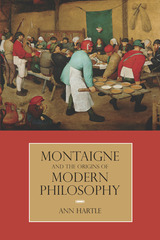
Montaigne’s Essays are rightfully studied as giving birth to the literary form of that name. Ann Hartle’s Montaigne and the Origins of Modern Philosophy argues that the essay is actually the perfect expression of Montaigne as what he called "a new figure: an unpremeditated and accidental philosopher." Unpremeditated philosophy is philosophy made sociable—brought down from the heavens to the street, where it might be engaged in by a wider audience. In the same philosophical act, Montaigne both transforms philosophy and invents "society," a distinctly modern form of association. Through this transformation, a new, modern character emerges: the individual, who is neither master nor slave and who possesses the new virtues of integrity and generosity. In Montaigne’s radically new philosophical project, Hartle finds intimations of both modern epistemology and modern political philosophy.

This new study offers a general reassessment of H. G. Wells as a writer and thinker. It concentrates upon the close relationship between Wells’ developing philosophy and his literary techniques. The early chapters examine Wells’ treatment of such subjects as confinement and escape, sex, the nature of human identity, the relationship of individual to race, human progress, and the importance of education. At the same time, the describe the emotional topography that Wells created as a mean of vivifying his ideas, a topography constructed from image complexes largely based upon the analogy between individual and racial evolution.
The major contribution of the book comes in its later chapters, which deal with Wells’ metaphysical assumptions and his approach to his craft. His views on free will and strength of will were intimately related to his methods of literary composition. The important later chapters detail this relationship, while describing some of Wells’ characteristic literary devices, such as the intentional violations of certain novelistic conventions or the sly borrowing from and alluding to contemporary works of literature in what amounted to a covert polemic.
On the whole, this study argues for a coherent and consistent, though developing, philosophy operating throughout Wells’ career and manifested in experimental literary works which, while not always successful, were consistently inventive and intelligently crafted in the service of Wells’ principle aim, the education of the human species to a command of its own destiny.
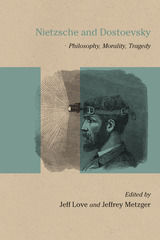

Eldridge presents an extensive new interpretation of Kantian ethics that is deeply informed by Kant's aesthetics. He defends a revised version of Kantian universalism and a Kantian conception of the content of morality. Eldridge then turns to literature armed not with any a priori theory but with an interpretive stance inspired by Hegel's phenomenology of self-understanding, more or less naturalized, and by Wittgenstein's work on self-understanding as ongoing narrative-interpretive activity, a stance that yields Kantian results about the universal demands our nature places on itself.
Eldridge goes on to present readings of novels by Conrad and Austen and poetry by Wordsworth and Coleridge. In each text protagonists are seen to be struggling with moral conflicts and for self-understanding as moral persons. The route toward partial resolution of their conflicts is seen to involve multiple and ongoing activities of reading and interpreting. The result of this kind of interpretation is that such literature—literature that portrays protagonists as themselves readers and interpreters of human capacities for morality—is a primary source for the development of morally significant self-understanding. We see in the careers of these protagonists that there can be genuine and fruitful moral deliberation and valuable action, while also seeing how situated and partial any understanding and achievement of value must remain.
On Moral Personhood at once delineates the moral nature of persons; shows various conditions of the ongoing, contextualized, partial acknowledgment of that nature and of the exercise of the capacities that define it; and enacts an important way of reading literature in relation to moral problems. Eldridge's work will be important reading for moral philosophers (especially those concerned with Kant, Hegel, and issues dividing moral particularists from moral universalists), literary theorists (especially those concerned with the value of literature and its relation to philosophy and to moral problems), and readers and critics of Conrad, Wordsworth, Coleridge, and Austen.
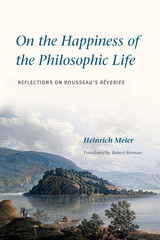
The first part of On the Happiness of the Philosophic Life approaches the Rêveries not as another autobiographical text in the tradition of the Confessions and the Dialogues, but as a reflection on the philosophic life and the distinctive happiness it provides. The second turns to a detailed analysis of a work referred to in the Rêveries, the “Profession of Faith of the Savoyard Vicar,” which triggered Rousseau’s political persecution when it was originally published as part of Émile. In his examination of this most controversial of Rousseau’s writings, which aims to lay the foundations for a successful nonphilosophic life, Meier brings to light the differences between natural religion as expressed by the Vicar and Rousseau’s natural theology. Together, the two reciprocally illuminating parts of this study provide an indispensable guide to Rousseau and to the understanding of the nature of the philosophic life.
“[A] dense but precise and enthralling analysis.”—New Yorker
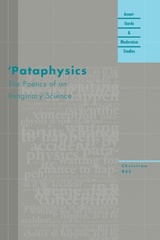
A long overdue critical look at a significant strain of the twentieth-century avant-garde, 'Pataphysics: The Poetics of Imaginary Science raises important historical, cultural, and theoretical issues germane to the production and reception of poetry, the ways we think about, write, and read it, and the sorts of claims it makes upon our understanding.
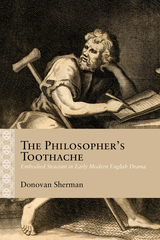
Informed by work in both classical philosophy and performance studies, Donovan Sherman argues that Stoicism infused the complex theatrical culture of early modern England. Plays written and performed during this period gave life to Stoic exercises that instructed audiences to cultivate their virtue, self-awareness, and creativity. By foregrounding Stoicism’s embodied nature, Sherman recovers a vital dimension too often lost in reductive portrayals of the Stoics by early modern writers and contemporary scholars alike. The Philosopher’s Toothache features readings of dramatic works by William Shakespeare, Cyril Tourneur, and John Marston alongside considerations of early modern adaptations of classical Stoics (Seneca, Epictetus, and Marcus Aurelius) and Neo-Stoics such as Justus Lipsius. These plays model Stoic virtues like unpredictability, indifference, vulnerability, and dependence—attributes often framed as negative but that can also rekindle a sense of responsible public action.
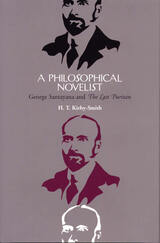
H. T. Kirby-Smith uses Santayana’s 1936 novel, The Last Puritan, as both an occasion and a means for bringing into focus the complex relations between Santayana’s life, his personality, and his philosophy. Opening with an account of Santayana’s various literary styles and arguing for the significance of Santayana’s writing of philosophy as literature, Kirby-Smith notes that Santayana saw the rational life as a continual adjustment and accommodation of contradictory claims. And he saw a literary style as an accommodation of the author to the reader.
Chapters 2 through 5 provide the philosophical background for a consideration of The Last Puritan, summarizing exactly how Santayana assimilated other philosophies into his own.
Chapters 6 and 7 incorporate Santayana’s three-volume autobiography, his letters and memoirs, and biographical studies by others into a psychological portrait of the author. All of this is in preparation for chapters 8 and 9, which focus on The Last Puritan. Kirby-Smith closes with a chapter that serves as a legal brief in defense of the author against the harsh, sometimes malicious attacks of his critics.

formally trained in the discipline of philosophical inquiry. Dooley shows how
Crane's philosophical pluralism, which represents his response to the acute moral
uncertainties resulting from the decline of late nineteenth-century religious
authority, allies him with the contextualism of such contemporary philosophers
as William James, C. S. Peirce, and Josiah Royce."
-- James B. Colvert, author of Stephen Crane
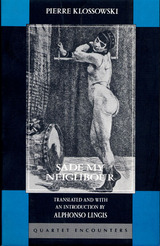
Klossowski was one of the first philosophers in postwar Europe to ask whether Sade's reason, although aberrant and perverted to evil passions, could be taken seriously. Klossowski's seminal work inspired virtually all subsequent study of Sadean thought, including that of de Beauvoir, Deleuze, Derrida, Bataille, Blanchot, Paulhan, and Lacan.
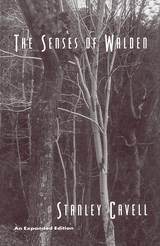
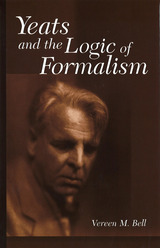
READERS
Browse our collection.
PUBLISHERS
See BiblioVault's publisher services.
STUDENT SERVICES
Files for college accessibility offices.
UChicago Accessibility Resources
home | accessibility | search | about | contact us
BiblioVault ® 2001 - 2024
The University of Chicago Press









